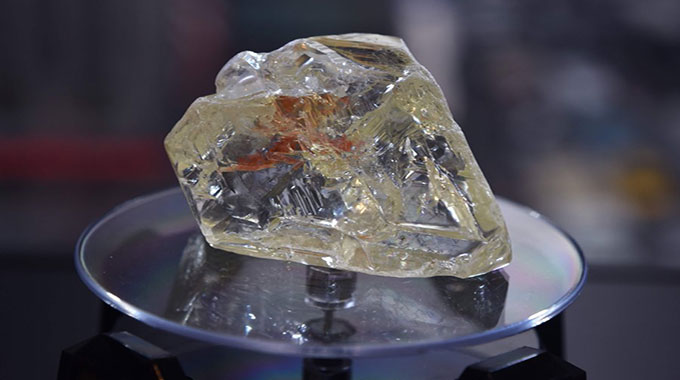Tile manufacturer lobbies for tax on Zambian imports

Golden Sibanda, Harare Bureau
CHINESE tile manufacturing firm Sunny Yi Feng is lobbying the Treasury to introduce a Selected Goods Tax (SGT) on tiles from Zambia in reciprocation to a similar requirement in that country, which it says is critical to level out the playing field.
Presently, the firm exports to Botswana, Mozambique, Kenya and South Africa- its largest market accounting for about half its total exports and Zambia, a potentially lucrative market it says is the only one among export destinations levying the SGT.
Sunny Yi Feng public relations manager Leo Wang told our Harare Bureau that the SGT by Zambia made its products more expensive and uncompetitive in Zambia, as it forces the firm’s wholesale market to sell the tiles for a higher price.
“The situation is eating into the profits of our customers. It means our clients need to increase their prices (to cover the tax), that is not fair to our customers, the competition is not fair,” Mr Wang said, adding, Zambia accounts for between 5-8 percent of its total exports.
He said the company made a proposal to the ministries of Finance and Economic Development and Industry and Commerce to look into the issue with a view to promote a fair-trading environment in the tile products market.
“We approach your office, humbly seeking your assistance with the Selected Good Tax charges we are facing when exporting to Zambia.
“We have noticed that when we export to Zambia our customers are faced with five percent SGS charges, which causes them to require higher prices for their customers, thus, reducing their ability to compete in the market.
“However, our side, Zimbabwe, does not charge the same SGS fees to Zambia tiles resulting in unfair trading ground,” general manager Cheng Guofend said.
Sunny Yi Feng has proposed the situation to be addressed, including by putting in place a duty on and table ware from Zambia to help support local industries.
“We have faith that with your assistance on the issue, we will be able to expand our market and in turn contribute more to our country’s economy,” Mr Guofeng said.
Mr Wang said while South Africa remained Sunny Yi Feng’s single largest market, Zambia had demonstrated strong potential for growth and seemed to be catching up with the rest of the other markets, but said the SGS remained the biggest impediment.
The firm’s US$120 million plant has capacity to produce 700 000 square metres of tile per month. It also produces tableware and packaging paper boxes. Mr Wang said the company currently employs 1 700 workers, mostly from Norton, but also Harare.
It manufactures over 40 000 pieces of cups and plates as well as 35 000 square metres of floor and wall tiles daily, according to officials. The company’s production lines are capable of producing both the high-end market porcelain tiles and the ceramic for the mass market.
The 40 000 cups and plates are meant for the local market, while between up to 70 percent of the tiles are exported in the region with leading importers being South Africa, Kenya, Zambia, Mozambique, Malawi, Madagascar and Botswana.
Sunny Yi Feng uses materials obtained locally, largely from Mazowe, Chegutu, Selous and Chakari and in some cases Mutoko areas. At least 99 percent of the raw materials are obtained locally save for a few components from South Africa such as paper to make packaging materials and zirconium silicate and bentolite from Mozambique.
The Chinese companies have become major players in manufacturing and construction sectors in Zimbabwe.










Comments